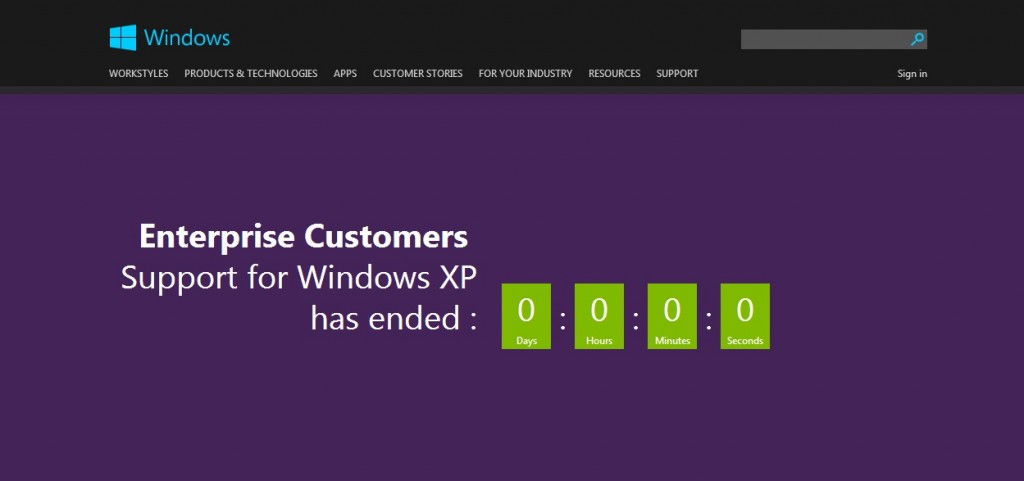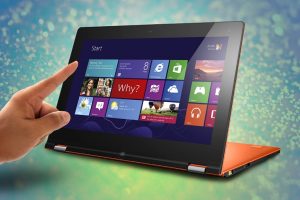Sometime last year I wrote about the looming death of Microsoft’s most successful operating system. Today is Day 1 after the fact (yesterday 8th April 2014 was Dooms Day). For a while, Microsoft has been screaming to all users of the legendary operating system to make the switch to Windows 7 and 8, even giving users tips on how to migrate. In my article, I highlighted why many enterprise users might turn a deaf ear to Microsoft’s advice.
As I write this 28% of all computers hooked to the internet are still happily powered by Windows XP. Many banks (including the ones I bank with), vending terminals and Automated Teller Machines (ATMs) have not heeded to the Dooms Day warning. I was hoping that today, the vending machine outside my office which I conveniently use to pay most of my bills would be spitting out cash and giving me free airtime but alas! Having followed this closely, this is what we expect is going to happen over the coming months:
Dear Microsoft, REF: Request for Extended Support
I have been somewhat skeptical that Microsoft (knowing how good they are at minting money) will pull the plug just like that. Considering the cost and risks involved in system upgrades many enterprises will request Microsoft for extended support. Actually the governments of China, Netherlands and UK have already signed contracts worth millions for legacy support. It looks like XP might have second life after all.
What the heck, things still work fine here
What would life be without laggards? Some people are not impressed by the band wagon and as such, will continue to happily use Windows XP. If we had wider internet coverage in Africa, I bet that 28% figure would be higher. There will definitely be many laggards for a while to come. Also, in the continuous bid to keep costs low, many CEOs and CFOs will still be reluctant to approve their IT departments’ proposals for the upgrade. After all, the systems still work right?
Migration to Windows 7 (and may be 8)
This is the logical thing to do considering that XP will no longer be supported (for most users). Enterprises have been working around the clock to ensure that their operating systems are compliant. I was impressed to know that the forex rates display terminals in one of the banks I use were powered by Windows 7. As expected, we hope to see more enterprises especially those that run critical services like the banks deploying other operating systems.
It looks like Microsoft has had alternating degrees of success with its operating system releases, that is, Windows XP was good, and Vista was bad. Windows 7 was good and 8 was…
That said, the adoption rate for Windows 8 will not be as high as that of 7. Comparatively Windows 7 is enjoying 48% while Windows 8 and 8.1 is 6% and 5% respectively. It might take a while for users to adjust to the completely new design of Windows 8. Some users will probably never upgrade to Windows 8 considering how annoying they find it. Another death threat from Microsoft might do the trick although that won’t be happening any time soon.
The Open Source option
Who needs an expensive operating system when you can get one for free? Over the years the Open Source boys have upped their game. Linux is no longer for just the geeks. The likes of Ubuntu and SUSE (not forgetting Android) now come with sleek windows systems and user friendly experiences that might give Mac and Windows a run for their money. Even with all these advancements, we don’t expect so many people to migrate to Linux. Save for the mobile space where Android is the run-away power house, there will still be more users migrating to Windows 7 (and maybe 8). One or two might migrate to Mac.
Hackers Day Out
We expect that hackers will figure out how to exploit all those vulnerabilities that will be left behind now that there won’t be any more security patches for download. Users might now need two anti-viruses to protect their systems from crashing under the load! On the bright side, there might even be a black market site to get unofficial updates. This might be good business for the pirates.
A trip to the museum
When all is said and done, the ultimate end will surely come. For now, I can’t say when that will be. Microsoft will finally archive XP and in its bid to give back to the community and also in the spirit of open source we should see some Windows XP repositories for download somewhere on the internet.
We expect XP to join MS-DOS 2.0 in the Computer History Museum where it will now belong to the ages. Windows XP has had an excellent run with a lot of success and although Microsoft has brought an end to it, the end has not yet come for many die-hards. The legend lives on.
Discover more from Dignited
Subscribe to get the latest posts sent to your email.












